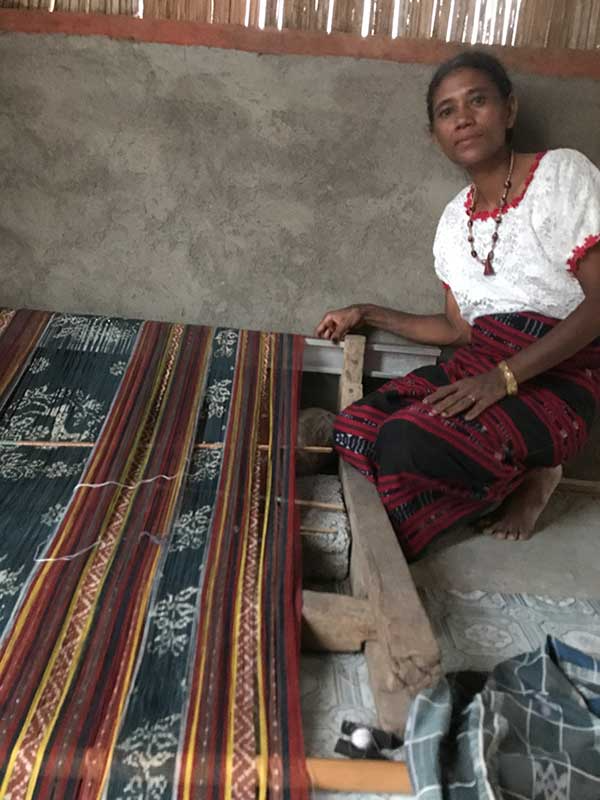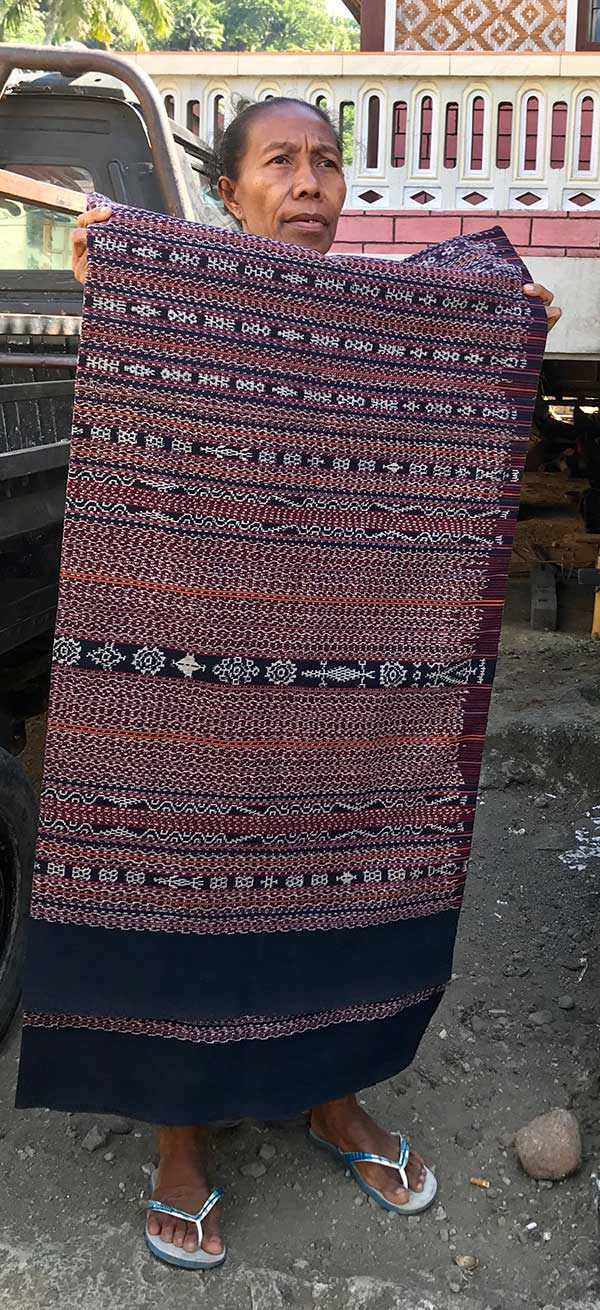Community Social Enterprise – Nani House, Maumere, Flores Part 2

Women from the relocated compound of Palu’e people
The island of Palu’e is located off the north coast of Flores in the Flores Sea and is part of the regency of Sikka. In 2013 the Rokatenda volcano on the island erupted killing a few people and displacing many. This eruption led to the Sikka government relocating many Palu’e people of the Hata Lu’a cultural group to the mainland of Flores. Daniel David is currently working with a group of weavers in one of these relocated villages where about 100 families live.
The government gave each family enough land to build a home but no additional land to farm. It was understood that these families would return to Palu’e island to farm during the raining season. While the people return regularly for ceremonies, they try to find other means of livelihood other than returning to their land on Palu’e. Weaving has become one of the sources of income.

Families from Palu’e were given small plots of land big enough to build a family house

Palu'e weaver using natural dyes to make a Sikka textile rather than her own traditional textile
This Palu’e weaver group is often commissioned to make Sikka textiles rather than their own dark blue-black lokha traditional textiles. However, they would like to begin to make their own traditional textile in natural dyes.
Threads of Life is experimenting with over-dyeing indigo with (Ceriops tagal) mangrove bark to help the Palu’e weavers recover their black-blue natural dye process. Though it has been many years since the Palu’e women used natural dyes, the use of indigo is clearly recalled and over-dyeing with mangrove bark is consistent with neighboring traditions in eastern Flores and Lembata. Threads of Life is also supporting Daniel David and his work with the Palu’e weavers group by purchasing their textiles through Nani House.

Traditional Palu'e textiles (lokha) using a light indigo with the traditional red motifs in the structure

Tana Ai traditional dress
The Tana Ai cultural group is found in both the Sikka and East Flores regencies. While Tana Ai traditional textiles are still being woven for ceremonial purposes, it has been many years since natural dyes were used.
The Tana Ai women that are working with Nani House were wearing Sikka textiles rather than their traditional textiles. Throughout Sikka these types of textiles are the most common and are valued by local people for both ritual and practical use.

Women in Tana Ai wearing the more commonly made Sikka textiles

Traditional weaver from Watublapi
The Sikka Krowe are yet another cultural group in the Sikka area, and has the Iwan Gete as a cultural sub-group and area. This is where Daniel David’s father came from and where Daniel helped create the weaving group in the village of Watublapi. Threads of Life first worked with Watublapi in 2003 to revive the use of traditional natural dye techniques.
Iwan Gete textiles are much more detailed than the more common floral-patterned lowland Sikka Krowe textiles. The Iwan Gete’s four-part (wiri wanan) textile has a structure incorporating many small stripes with both solid coloured threads and tiny ikat motifs. The Nian nipa textile is named for its resemblance to snake skin and the myth of the great snake (nipa) that carries the goddess of rice on its back as it travels across the land creating fertility.

A nian nipa textile from the highlands of Sikka

A high level of skill is required to make a nian nipa textile from the highlands of Sikka regency
It is very time consuming and requires a high level of skill to make a textile of this complexity and such work is mostly done now by older women who have the patience and passion for making these textiles.
Threads of Life is proud to be working with Daniel David and Nani House and looks forward to promoting the beautiful textiles from the various cultural groups of east Flores. We are expecting several of the nian nipa wiri wanan soon to be displayed for sale at Threads of Life Ubud.

Daniel David and his wife Afreda Dua Ninan

